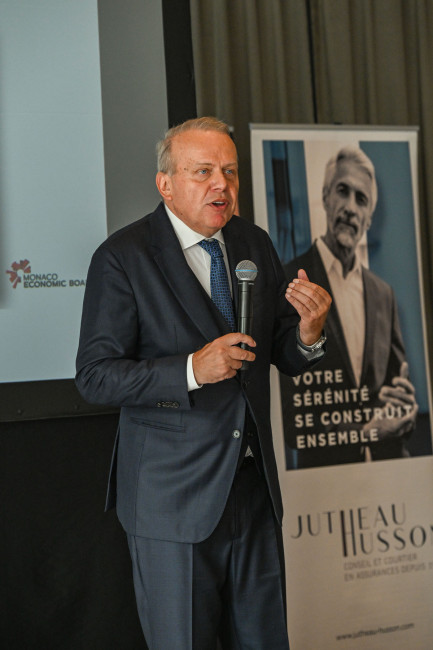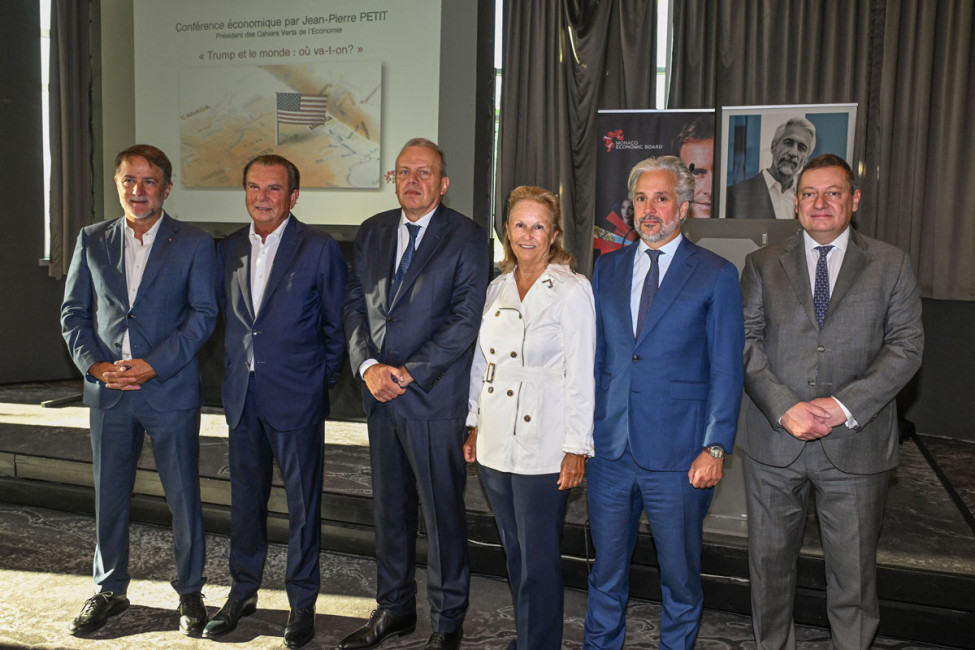Donald Trump, a historical figure, analysed by Economist Jean-Pierre Petit
On Friday, 12 September at the Méridien Beach Plaza, the Monaco Economic Board and Jutheau Husson organised a conference on the theme "Trump and the World: where are we heading?" by the economist Jean-Pierre Petit. The event provided an analysis of a major trend and its global consequences.
While Donald Trump's first term in the White House may have seemed like a political blip to some in the United States, his return in 2025 has confirmed a far more significant and lasting phenomenon. For this reason, Jean-Pierre Petit, President of Les Cahiers Verts de l’Économie, examined this figure, whom he described as "historic, whether you like it or not," in a presentation that combined irony with sharp observations.
During his talk, Jean-Pierre Petit explored the first nine months of Donald Trump’s second term, marked by a strong return to national sovereignty and a resolutely pragmatic international policy. "It's not America above everyone else; it's America first," he stated. On the domestic front, the economist asserted that Trump is not a danger to democracy or the rule of law, but that, in his view, "political legitimacy must take precedence over the activism of judges." He went on to highlight the American president's controversial economic choices, particularly his protectionism, tariffs, and his view of America as a victim of globalisation, all while fully leveraging the country's power. The economist also underscored the growing tensions between the United States and its partners, notably China and Europe.
Regarding Europe, he addressed the economic and political challenges it faces, including its increasing dependence on the United States in sectors such as energy, digital technology, and armaments. He criticised the weakness of European elites, whom he described as "naive and pusillanimous," and incapable of defending genuine strategic autonomy, while also highlighting the negative consequences of this submission on the continent's competitiveness and sovereignty.
Finally, the economist broadened his analysis to global perspectives, emphasising the contradictory signals of a global economy searching for resilience. He spoke of inflationary pressures, uncertainties related to tariffs, and the challenges posed by the energy and digital transitions. Regarding growth prospects, he noted that they are relatively weak without being alarming, stating that "it will depend in particular on the capacity of investments to compensate for the deterioration of the labour market and household demand."
As is customary during his visits to the Principality, at the end of his presentation, Jean-Pierre Petit offered some valuable advice to investors. He recommended caution regarding American markets, as "our indicator for a bubble in equities is approaching the danger zone." However, he added that this remains an interesting option, as do the Chinese and Korean markets. Gold, although already well valued, remains a valid haven. In general, the watchword remains prudence and portfolio diversification.


From left to right: Mr Philippe Ortelli, Vice-President of the MEB; Mr Michel Dotta, President of the MEB; Mr Jean-Pierre Petit, President of Les Cahiers Verts de l’Économie; Mrs Patricia Husson, Honorary President of Jutheau Husson; Mr Hervé Husson, President of Jutheau Husson; Mr Guillaume Rose, Chief Executive Officer of the MEB
